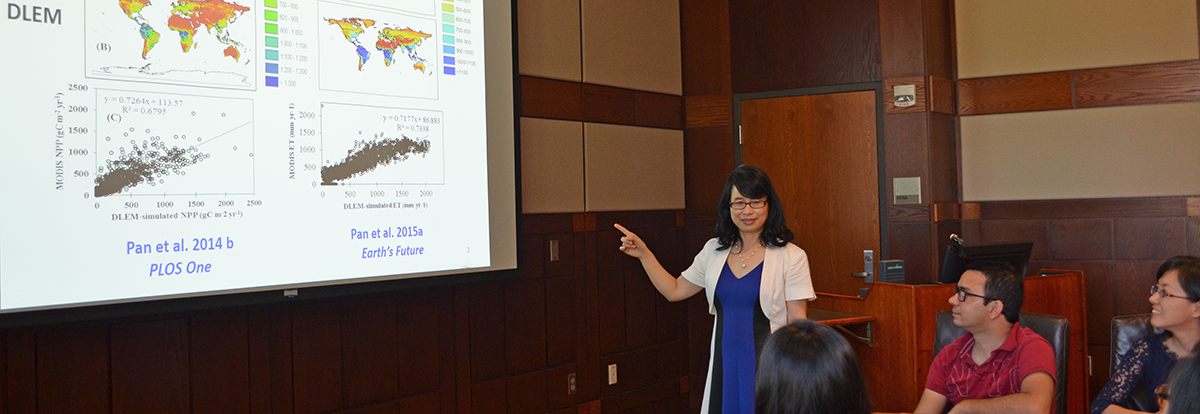This slider contains three images: a man with a gps unit plotting electric for a development, a man using geospatial software to plot land use, and a woman giving a presentation using environmental informatics to communicate about water and food scarcity.
Geospatial and Environmental Informatics
Geographic information systems (GIS), the global positioning system (GPS), satellite-based remote sensing, and computer simulations are tools commonly used today by all sectors of the economy for planning and decision-making.
Geospatial technologies have penetrated every aspect of our lives, from digital maps and location services on our smart phones, to the management and maintenance of city infrastructure, regional forests and agriculture lands. They are also used to forecast potential markets for retail and development.
One of few programs offered in the Southeast, the geospatial and environmental informatics program brings together information technology, spatial science, data analysis, natural resources and ecological modeling to prepare you for in demand technological careers where “Big data” drives decisions.
Professionals are in high demand for collecting, collating, modeling, analyzing, visualizing, and communicating geospatial information. Graduates can anticipate a wide variety of career opportunities within public agencies and government, private corporations, and consulting firms as:
- Data and information specialists
- Ecosystem modelers
- Business analysts
- Environmental consultants
- Land use and resource planners
Ready to get started? Our student advisors in the College of Forestry, Wildlife and Environment are available to help you begin an exciting career in the diverse and rapidly growing fields of geospatial and environmental informatics!
Note: Students may incur laboratory, transportation, or other fees associated with labs and field experiences required for course credit.














